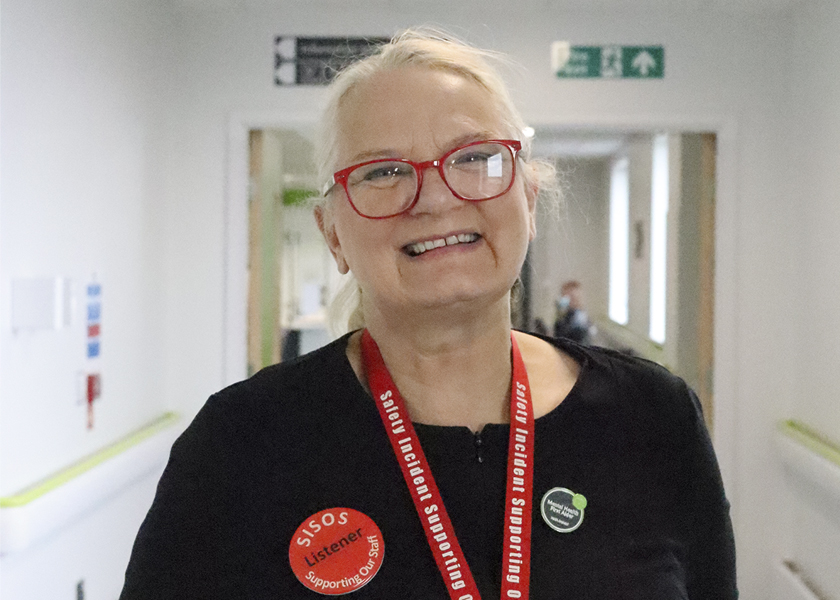
Charity funding increases visibility of mental health support
2 November 2022
Funding from the Royal Free Charity has resulted in a package of mental health and wellbeing support for the Royal Free London’s 10,000 staff. It ranges from psychological support with qualified therapists to peer support in the form a mental health first aid programme. Mental health first aid in work teaches people how to identify, understand and respond to colleagues who may be experiencing a mental health issue. It is an initial response to distress in the workplace. Carol Menashy, mental health first aider, has led the roll-out of the programme at the trust. She tells us more about the programme and the difference funding from the Royal Free Charity has made:
“Last year, we supported more than 500 colleagues. We work on a peer support level. We listen with compassion and empathy and without judgement. People open up to us about mental health struggles and we can signpost them for support to the most appropriate professional rank or service.
Having the charity’s funding has made that crucial difference. It gives us that time to reach those people who wouldn’t necessarily find our service otherwise. It’s an outreach service. We’ve been building this community of mental health first aiders who are very committed people, and bringing them together.
People come to us about lots of different things. It’s a workplace support scheme but we’re here irrespective of whether staff are experiencing distress at work or at home. And what we find is that everything is related: if you’re unhappy at home, that’s going to impact on your work and the other way round.
We’ve had a lot of people who’ve sadly been bereaved, and we’ve been giving support by signposting to chaplaincy and counsellors through the trust’s occupational health psychology team. We’ve supported quite a few staff who’ve opened up about domestic abuse; they felt at this trust that they could come to us and we’ve been able to support them and keep them safe. Retirement and pensions are another issue we see; people come to us because they are approaching retirement and they’re stressed about their pension.
Bereavements, emotional health, physical health, bullying – people come to us about all of those things. Not everyone is referred on; often people just want to talk and offload and once they’ve done that, they’re actually okay. We give them the space to do that.
Space to talk
Thanks to the charity’s funding, there are rooms dedicated to staff wellbeing, known as wobble rooms. The wobble rooms are there for people to use independently or they can use them to receive support. And that could be from anyone providing mental health support, including the first aiders or the chaplaincy. Before we had them, it was very difficult to find an appropriate space and that’s very disconcerting. Now, if someone is very distressed in the moment, we know where we can take them. We have a space that’s there for us to use.
A visible presence
I’m a theatre nurse, so prior to having this funding, I would be doing this in my time on the side, which was very difficult. The funding from the charity allows me to focus. It is wonderful to have the time to actually say: “Yeah, I’ll talk to you next Wednesday”, because as a scrub nurse, I could never say that.
We do weekly wellbeing walkabouts. With the clothes I wear, people can recognise me easily. On Mondays I go to the Royal Free Hospital. We’re at Chase Farm Hospital and Barnet Hospital on Wednesdays.
We are not only looking at the clinical sites. My colleague Maria covers the civic centre in Enfield where admin staff are based and also the decontamination service team.
We’ve got training lined up and I’m hoping to get somebody on board to cover Edgware, so that all sites will have access to a mental health first aider and know who they can contact if they’re struggling. It’s making mental health support accessible across the trust sites. The charity has really amazed me, actually. I didn’t realise or appreciate just how much they did and it’s just been wonderful.”



